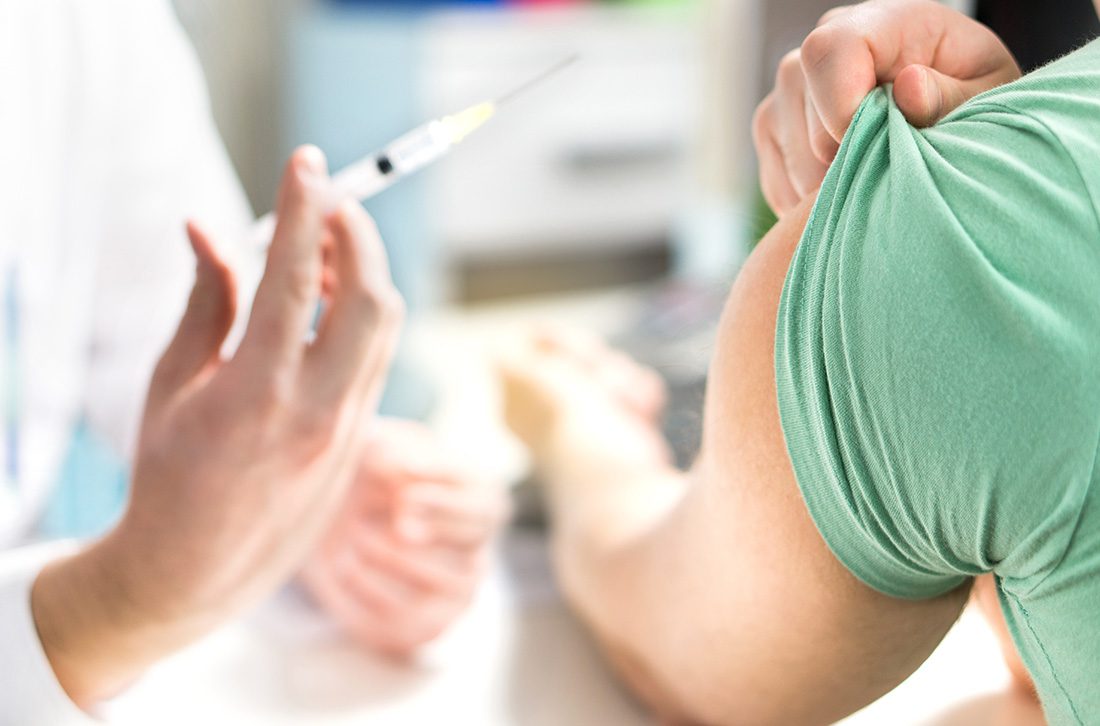Staying healthy, one vitamin at a time

Your body needs vitamins and minerals to function and keep you healthy, but did you know they play a crucial role in supporting your immune system? Some vitamins, such as vitamins A, B, C, D and E, and minerals like iron and zinc, are essential for the growth and development of your immune system.
The best way to get these nutrients into your body is through a varied and balanced diet, but in some instances, a vitamin and mineral supplement may be required to support the immune system and prevent deficiencies.
Here at Pharmacy+Health, we understand that there is a lot of information to digest when it comes to this topic. This article explores vitamins and minerals in further detail and looks at the benefits of each one.
Vitamin A
Vitamin A plays an important role in fighting off illnesses and infections and ensuring the immune system works properly. It also helps keep the skin healthy and is essential for good vision and overall eye health.
Some foods that vitamin A is found in are:
- Eggs
- Cheese
- Oily fish
- Milk and yoghurt
- Liver pâté
How much vitamin A is needed?
It’s recommended by the NHS for men to take around 700 micrograms of vitamin A and for women to take 600 micrograms a day.
B Vitamins and Folic Acid
There are eight types of B vitamins, including thiamin (vitamin B1), riboflavin (vitamin B2), niacin (vitamin B3), vitamin B6, biotin (vitamin B7), vitamin B12, pantothenic acid, and folate and folic acid. In this section, we will focus on folate and folic acid.
Folate is a B vitamin and folic acid is the manmade form of folate. It helps the body produce healthy red blood cells and can also reduce the risk of birth defects such as spina bifida in unborn babies.
Some foods that folate is found in are:
- Leafy green vegetables (spinach, cabbage, kale, etc.)
- Liver
- Brussels sprouts
- Peas
- Folate-fortified cereals
How much folate is needed?
The NHS recommends adults need 200 micrograms of folate a day. However, if you are pregnant or trying to get pregnant, it’s recommended to take a folic acid supplement of around 400 micrograms until you are 12 weeks pregnant.
Vitamin C
Vitamin C is important for strengthening the immune system, protecting cells and keeping them healthy, and helping wounds heal. Another function of vitamin C is that it helps maintain healthy skin, blood vessels, and bones.
Some foods that vitamin C is found in are:
- Citrus fruits (for example, oranges and orange juice)
- Strawberries
- Potatoes
- Peppers
- Broccoli
How much vitamin C is needed?
Adults aged 19 to 64 are recommended to get 40 micrograms of vitamin C a day and this can be achieved from your normal diet.
Vitamin D
Taking vitamin D can help balance the calcium and phosphate in the body, which is essential for keeping the bones, muscles and teeth healthy. Bone deformities like rickets in children or osteomalacia in adults can form if there is a lack of vitamin D.
Between October and March, it’s recommended to take a vitamin D supplement as the body doesn’t create enough vitamin D from sunlight, which could result in a deficiency. However, the body can still get a small amount of vitamin D from other sources.
Some foods that vitamin D is found in are:
- Oily fish
- Egg yolks
- Red meat
- Liver
- Fortified foods (some breakfast cereals or fat spreads, for example)
How much vitamin D is needed?
Adults and children aged 4+ should consider taking a supplement during the autumn and winter months as the sun isn’t strong enough to allow the body to make enough vitamin D. From March to September there is enough sunlight for most people to make enough vitamin D on their skin, as well as through a varied and balanced diet.
Babies from birth until 1 year old need a daily supplement containing around 8.5 micrograms to 10 micrograms of vitamin D, and children aged 1 to 4 years old need 10 micrograms.
Vitamin E
Vitamin E is good for maintaining healthy skin and eyes and helps improve the immune system by enhancing the body’s ability to fight illnesses and infections.
Some foods that vitamin E is found in are:
- Nuts and seeds
- Cereals with wheatgerm
- Avocado
- Mango
- Vegetable oil
How much vitamin E is needed?
It’s advised by the NHS that men need 4 milligrams of vitamin E and women need 3 milligrams. You can get this from your diet.
Vitamin K
The body needs vitamin K to help with blood clotting to stop a wound from bleeding and help it to heal. Vitamin K is also believed to help with keeping bones healthy.
Some foods that vitamin K is found in are:
- Green leafy vegetables (spinach and broccoli)
- Chicken
- Pork chops
- Kiwi
- Hard and soft cheeses
How much vitamin K is needed?
It’s advised for adults to get around 1 microgram of vitamin K for each kilogram of their body weight daily.
Calcium
Calcium is important for building strong bones, keeping teeth healthy, and ensuring that the blood clots normally. It also helps regulate muscle contractions. Similar to vitamin D, a lack of calcium can cause rickets in children and osteomalacia in adults.
Some foods that calcium is found in are:
- Milk
- Cheese
- Bread
- Fish with bones (sardines and tinned salmon, for example)
- Green leafy vegetables (kale and okra)
How much calcium is needed?
700 milligrams of calcium is needed for adults aged between 19 to 64, which you can get from your daily diet.
Iron
Iron plays a crucial role in making red blood cells. These cells allow oxygen to be carried throughout the body, and a lack of iron can cause anaemia.
Some foods that iron is found in are:
- Nuts
- Red meat
- Beans (red kidney beans and chickpeas, for example)
- Liver
- Fortified breakfast cereals
How much iron is needed?
Men aged 19 and over need approximately 8.7 milligrams of iron per day, while women aged 19 to 49 need about 14.8 milligrams. For women aged 50 and over, getting around 8.7 milligrams of iron a day is advised.
Zinc
Zinc is important for producing new cells, healing wounds, and fighting off infections, and it also helps with processing carbohydrates, fats, and protein in food.
Some foods that zinc is found in are:
- Bread
- Cheese
- Meat
- Shellfish
- Cereals with wheatgerm
How much zinc is needed?
Men aged 19 to 64 need about 9.5 milligrams of zinc each day, and women need about 7 milligrams.
The takeaway
Vitamins and minerals are beneficial for your health and support your immune system. They can be consumed through a varied and balanced diet, but if you experience a deficiency in vitamins and minerals it can result in a range of health issues. In these cases, supplements may be required.
We hope this guide has been helpful and given you further insight into the different types of vitamins and minerals that your body needs.
Tags
About the author
Mark Pedder
Popular topics





